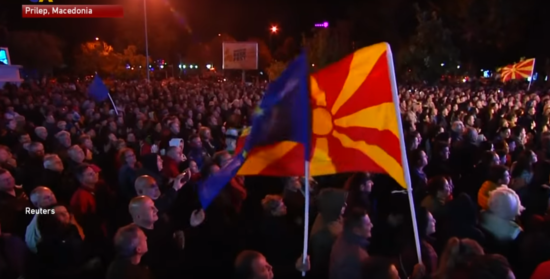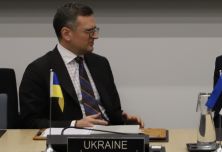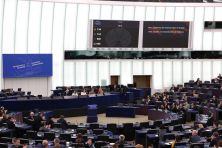A small change, but massively important to their future within the European Union and NATO. The name Macedonia is extremely controversial within neighboring Greece. The historical region of Macedonia also consists of territory within southwestern Bulgaria and northern Greece. Many Greeks consider the name Macedonia to be hijacking their classical heritage, and more threateningly, a de facto claim to a chunk of their country.
In the past, the solution in international bodies has been to use the long-winded name “The Former Yugoslav Republic of Macedonia.” But, soothing relations with Greece requires a more permanent change. And soothing relations with Greece is a prerequisite for Macedonian EU and NATO ascension.
“Everybody makes compromises at home, with our spouses, admit it or not. It is so. Compromise is made after war, you leave the rifles and tanks, sit at a table and make compromise. We reached a fair and just compromise and made a friend along the way. Let’s move forward with our beautiful Macedonia,” Macedonian Prime Minister Zoran Zaev told a crowd of supporters.
However, there is still a coniderable amount of opposition to the name deal within Macedonia. When it was in power, the right-wing VMRO-DPMNE party placed a great deal of emphasis on the country’s connection to the Macedonia of Alexander the Great. Much of this project has been reversed, including changing the name of “Alexander the Great” Airport to “Skopje” Airport, but the party is actively fighting the changes in order to preserve what they see as Macedonia’s heritage.
“I would not be able to look myself in the mirror if I accepted something I don’t believe in. Something that I don’t feel and recognize as right. I want Macedonia as it is now, as we inherited it from our ancestors and want to leave it for our descendants the way it deserves: correct, proud and better than what we inherited. That’s our motto,” VMRO-DPMNE leader Hristijan Mickoski said.
The issue, if resolved, would pave the way to EU ascension in the majority Slavic, Eastern Orthodox country. Kremlin interests have been actively stirring up nationalist sentiment in both Greece and Macedonia in order to block the deal. Nationalist opposition parties in both countries are heavily tied to Russia. Greece had to go as far as expelling Russian diplomats in reaction to their political meddling.













